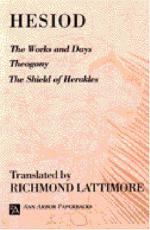|
This section contains 2,099 words (approx. 7 pages at 300 words per page) |

|
HERAKLES, the son of Zeus and the Theban queen Alcmene, is the most prominent Greek hero, despite the fact that no poem on his labors is preserved—numerous images, several preserved tragedies, and countless allusions to his myths and cults in Greek and Latin literature attest to his importance. But although he has a mortal mother and dies himself, he is no typical hero. He lacks the close connection with a single city, or with a grave as the focus of his cult. Instead, his mythology connects him especially with the cities of Thebes and Argos, and his cult is panhellenic and makes him appear much more like a god than a hero. One can understand why the poet Pindar (c. 522–438 BCE) blurred the categories and called him a "hero god," (hērōs theos; Nemean Ode 3.22).
Name
Ancient authors, as well as some modern scholars, connected his...
|
This section contains 2,099 words (approx. 7 pages at 300 words per page) |

|


